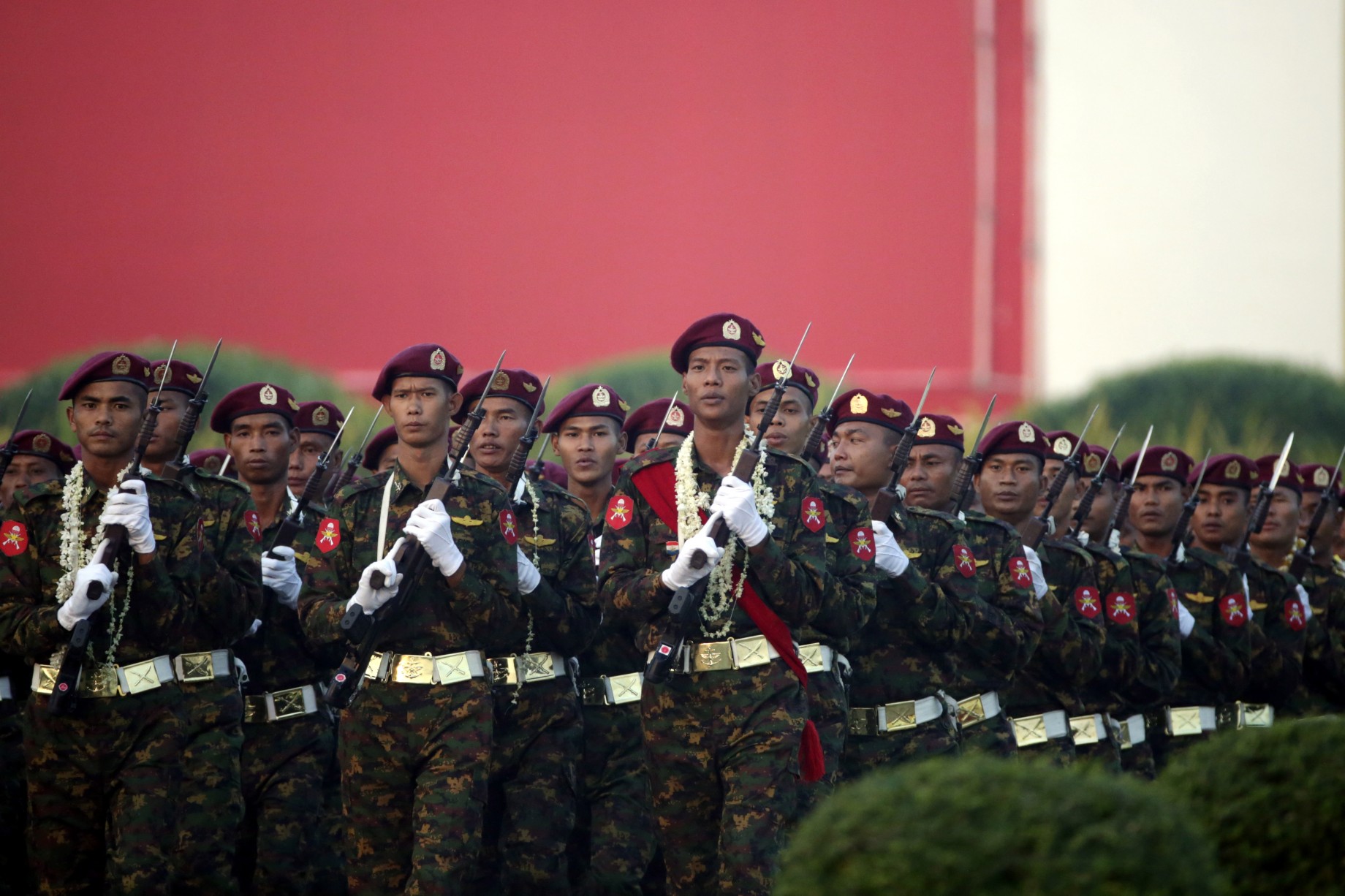
The military-owned Myanma Economic Holdings Co., Ltd. (MEHL) is six months late in sharing profits with soldiers who are required to buy and maintain a stake in the conglomerate, according to a shareholder and three captains who defected to the resistance.
The payout from MEHL is based on revenue generated annually and typically happens in September, but, at the time of reporting, troops had not received any funds for 2021, a number of military officers told Myanmar Now.
“It’s been nearly six months now and they still haven’t paid them yet. It looks worse when the military commander-in-chief currently is sitting on the highest position of power in the country,” retired lieutenant colonel and former MEHL director Kyaw Zaya said.
The former officer was also a parliamentarian who once represented the National League for Democracy (NLD)—the party whose elected administration was ousted in last February’s military coup. He retired from the People’s Pioneer Party after competing in the 2020 election but not securing a seat.
Kyaw Zaya explained that for the last 20 years, the required ownership of shares in MEHL has been determined by soldiers’ ranks and is deducted annually from their salaries. The amounts range from a 1.5m kyat (US$843) investment for low-ranking troops to at least 5m kyat ($2,810) for officers who are ranked at and above the position of lieutenant colonel.
Zay Thu Aung, an air force captain who left the military in February in order to join the anti-junta Civil Disobedience Movement, confirmed that the 2021 MEHL payments had repeatedly been delayed and may be an indication that the coup regime is struggling financially.
“I think they’re very broke now. That money was supposed to be given in September but they postponed it until December and they still haven’t given it yet,” he told Myanmar Now, adding, “They’re treating everyone as if they own them.”
Another striking officer, Cpt Htet Myat, said that soldiers were “unhappy” about the absence of the payout, which makes up a major part of their family income.
“Some have said that they had already stopped expecting that they would get it. They have lost faith that they will get it at all,” he said.
Kyaw Zaya and Htet Myat estimated that the MEHL payments received by low-ranking soldiers for their shares ranged from 600,000 to 1m kyat ($337 – $562) per year.
“They can only live comfortably if they get that money. It’s not just the regular soldiers. Even the retired officers rely on this money,” Kyaw Zaya explained.
When contacted by Myanmar Now, an MEHL staff member denied that there was any delay in sending the payments.
“It’s just a hoax that they’re not getting paid. We’ve been paying them regularly and on schedule,” general manager Hla Myo said.
Cpt Nay Myo Thit, another officer who defected to the resistance movement after seven years stationed in Rakhine State, said he had 3m kyat ($1,686) worth of shares in MEHL when he was serving in the military.
“They kept postponing the payment but the regular soldiers couldn’t do anything as the battalion commanders themselves were not brave enough to speak up about this matter,” he said.
Tin Tun Naing, the Minister of Planning, Finance and Investment in the shadow National Unity Government, speculated that the MEHL profits typically shared with soldiers were likely being designated to buy arms to support the junta’s struggle to crush the anti-coup resistance movement.
“The army generals always have and always will prioritise their hunger for power over everything and everyone else. They’re never going to care about what happens to regular soldiers and they never have,” he told Myanmar Now.

MEHL was founded in 1990 and includes around 50 business enterprises. The military conglomerate was long exempt from taxation, even through the administration led by Thein Sein which took office in 2011. After the NLD was elected in 2015, the army claimed in state-run newspapers that MEHL was a tax-paying public company.
The NLD investigated in 2020 whether it was a conflict of interest that two former generals in government positions—Ni Aung, the executive director of Myanma Port Authority, and Kyaw Htin, the executive director of the customs department—were also members of MEHL’s board of directors.
Both men later left MEHL in July of that year but retained their government postings.
Since the coup, Myanmar Now has been unable to obtain updated information on the company’s management and operations from the junta, which has not cooperated with media inquiries into the matter.
Many junta-owned enterprises have seen a decrease in profits since February 2021, when the Myanmar public began a widespread boycott of military businesses following the armed forces’ attempted seizure of power.
According to a May 2021 financial statement by Kirin, the Japanese company which produced Myanmar Beer in collaboration with MEHL, sales plummeted by 46 percent during this period, forcing Kirin to end the partnership, its dealings with MEHL and withdraw from Myanmar.
Advocacy group Justice For Myanmar reported that Mytel, a telecommunications company jointly-owned by the Myanmar and Vietnamese militaries, also lost $25m in profits in the three months after the coup.
Maung Shwe Wah contributed to this report.



